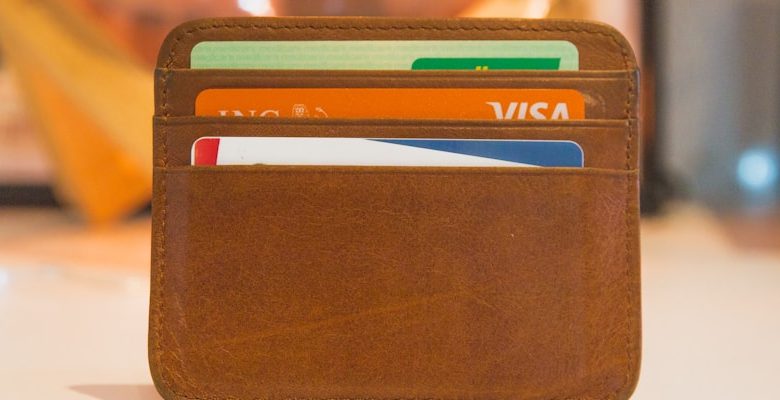Understanding Wallet Addresses and Their Security

- Exploring the Basics of Wallet Addresses
- The Importance of Securing Your Wallet Address
- Common Misconceptions About Wallet Addresses
- Understanding the Anatomy of a Wallet Address
- Tips for Enhancing the Security of Your Wallet Address
- The Future of Wallet Address Security
Exploring the Basics of Wallet Addresses
When it comes to understanding wallet addresses and their security, it’s essential to explore the basics to ensure your assets are protected. Wallet addresses are alphanumeric strings that represent a destination for a cryptocurrency transaction. Each wallet address is unique and serves as a digital signature for sending or receiving funds.
Wallet addresses are essential for securely managing your cryptocurrency holdings. They consist of a public key, which is used to receive funds, and a private key, which is used to authorize transactions. It’s crucial to keep your private key confidential to prevent unauthorized access to your funds.
When sending cryptocurrency to a wallet address, it’s vital to double-check the address to avoid any mistakes. Even a small error in the address could result in the loss of your funds. Some wallets support the use of QR codes to simplify the process of transferring funds securely.
Overall, understanding the basics of wallet addresses is key to ensuring the security of your cryptocurrency holdings. By familiarizing yourself with how wallet addresses work and taking necessary precautions to protect your private key, you can safeguard your assets and have peace of mind when engaging in cryptocurrency transactions.
The Importance of Securing Your Wallet Address
It is crucial to emphasize the significance of securing your wallet address in the world of cryptocurrency. Your wallet address is essentially your digital identity in the blockchain network, representing where your funds are stored. Without proper security measures in place, your wallet address is vulnerable to malicious attacks by hackers seeking to steal your assets.
When it comes to securing your wallet address, there are a few key practices to keep in mind. First and foremost, never share your wallet address with anyone you do not trust. This includes refraining from posting your wallet address on public forums or social media platforms, as it can make you an easy target for cybercriminals.
Additionally, consider using a hardware wallet to store your cryptocurrency funds securely offline. Hardware wallets are physical devices that store your private keys offline, making it nearly impossible for hackers to access your funds remotely. By utilizing a hardware wallet, you can add an extra layer of protection to your wallet address.
Furthermore, make sure to regularly update your wallet software to the latest version. Developers often release updates that include security patches to protect against new threats. By staying up to date with the latest software updates, you can minimize the risk of vulnerabilities in your wallet address.
Common Misconceptions About Wallet Addresses
One common misconception about wallet addresses is that they are permanent and unchangeable. While it is true that wallet addresses are typically long strings of characters that can be intimidating to look at, they are not set in stone. Wallet addresses can actually be generated anew whenever needed, providing flexibility and security to users.
Another misconception is that wallet addresses are tied to a specific individual or entity. In reality, wallet addresses are pseudonymous, meaning that they do not directly reveal the identity of the owner. This anonymity is a key feature of cryptocurrencies and helps protect user privacy.
There is also a misconception that wallet addresses are only used for sending and receiving funds. While this is their primary function, wallet addresses can also be used for other purposes such as verifying ownership of a particular wallet or signing transactions. Understanding the versatility of wallet addresses can help users make the most of their cryptocurrency experience.
It is important to dispel these misconceptions to ensure that users have a clear understanding of how wallet addresses work and how they can best protect their assets. By educating oneself on the intricacies of wallet addresses, users can navigate the world of cryptocurrency with confidence and security.
Understanding the Anatomy of a Wallet Address
The anatomy of a wallet address consists of a string of alphanumeric characters that serves as a unique identifier for a specific wallet. This address is essential for sending and receiving cryptocurrencies securely.
A wallet address is usually represented as a long string of letters and numbers, such as “1A1zP1eP5QGefi2DMPTfTL5SLmv7DivfNa.” Each address is unique to the wallet it belongs to, making it crucial for accurate transactions.
When sending funds to a wallet address, it is essential to double-check the characters to ensure the money reaches the intended recipient. A single incorrect character can result in the loss of funds, as transactions on the blockchain are irreversible.
Understanding the anatomy of a wallet address is crucial for maintaining the security of your cryptocurrency holdings. By familiarizing yourself with how these addresses are structured, you can minimize the risk of errors and potential losses. Take the time to verify addresses before sending funds to ensure a smooth and secure transaction process.
Tips for Enhancing the Security of Your Wallet Address
There are several tips you can follow to enhance the security of your wallet address. By taking these precautions, you can minimize the risk of unauthorized access and protect your digital assets:
- Use a hardware wallet to store your cryptocurrency securely offline.
- Enable two-factor authentication for an extra layer of security.
- Regularly update your wallet software to patch any vulnerabilities.
- Avoid sharing your wallet address on public forums or social media.
- Use a strong and unique password to access your wallet.
By following these tips, you can increase the security of your wallet address and protect your cryptocurrency investments from potential threats.
The Future of Wallet Address Security
The security of wallet addresses is a critical aspect of ensuring the safety of your digital assets. As technology continues to advance, so do the ways in which hackers can exploit vulnerabilities in the system. Therefore, it is essential to stay ahead of the curve and implement robust security measures to protect your funds.
One of the key advancements in wallet address security is the use of multi-signature technology. This method requires multiple private keys to authorize a transaction, making it significantly more secure than traditional single-key systems. By spreading the responsibility across several keys, the risk of a single point of failure is greatly reduced.
Another emerging trend in wallet address security is the use of biometric authentication. This technology leverages unique physical characteristics such as fingerprints or facial recognition to verify the identity of the user. By incorporating biometric data into the authentication process, the likelihood of unauthorized access to your wallet is minimized.
Additionally, the rise of decentralized finance (DeFi) has brought about new challenges and opportunities for wallet address security. With the increasing popularity of DeFi platforms, users must exercise caution and diligence when interacting with these services. It is crucial to conduct thorough research and only use reputable platforms to mitigate the risk of falling victim to scams or hacks.
In conclusion, the future of wallet address security lies in the adoption of advanced technologies such as multi-signature authentication and biometric verification. By staying informed and implementing these cutting-edge security measures, you can safeguard your digital assets against potential threats and enjoy peace of mind knowing that your funds are protected.



